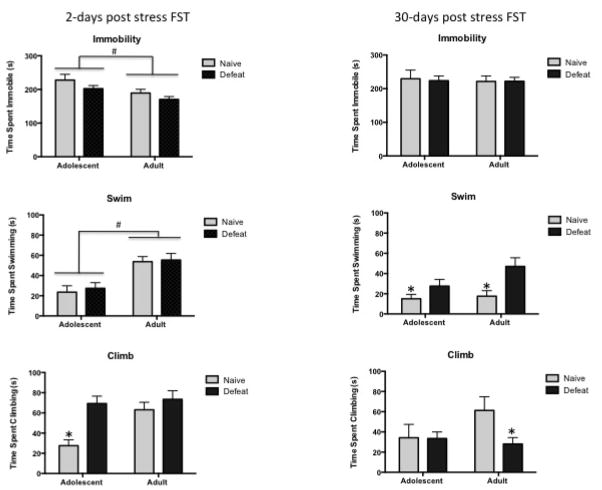Figure 3.
Short-term and long-term effects of social defeat on the Porsolt forced swim test. Defeated animals were subject to 7 days of social defeat, whereas naïve animals were left untouched in their homecage for the 7 days. The Porsolt FST was used to assess the immediate and long-term behavioral response to repeated social defeat stress. Animals (Adolescent Naïve: n=7, Adolescent defeat: n=15, Adult Naïve: n=8, Adult Defeat: n=19) were individually subjected to the Porsolt FST on two occasions: 2 days and 30 days after the end of the 7 days of social defeat or in naïve controls. Time spent in immobility (top graphs), swimming (middle graphs) and climbing (bottom graphs) during the FST administered two days after the end of repeated stress are shown in the left column and the right column shows the results of the FST administered 30 days after the end of repeated social defeat or control manipulation.
# p≤ .05 indicates a significant Age effect with a significant difference between adolescent and adult female rats
* p ≤ .05 indicates a significant Stress effect with a significant difference between defeated rats compared to age matched counterparts
@ p≤ .09 indicates a trend towards a significant Stress effect when compared to age matched counterparts

